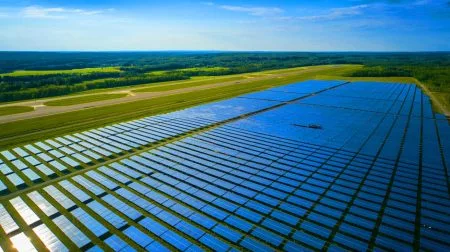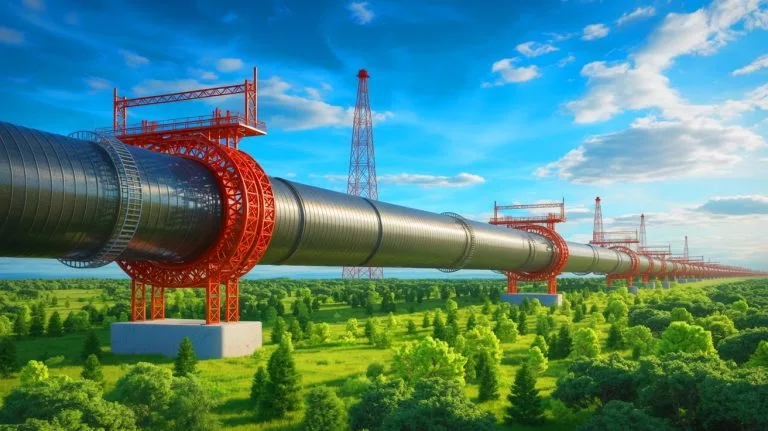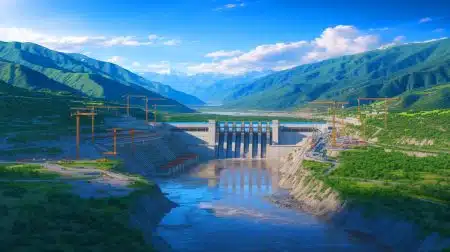| IN A NUTSHELL |
|
In the ever-evolving landscape of global energy, the recent statement by President Vladimir Putin about Russia’s new gas pipeline to China has drawn significant attention. Putin’s assertion that China will benefit from a “market-based gas price” through this new infrastructure underscores the strategic shift in energy alliances. As the world continues to grapple with energy demands and geopolitical tensions, this development points to broader implications for international energy markets. The pipeline is not just a symbol of energy cooperation but also a potential game-changer in the balance of energy power.
Strategic Energy Alliances: Russia and China’s Growing Partnership
The relationship between Russia and China in the energy sector continues to grow stronger. This partnership is particularly underscored by the strategic gas pipeline project, which is set to enhance China’s energy security while providing Russia with a stable market for its gas exports. Over the past decade, both countries have increasingly turned to each other to meet their respective energy needs. This pipeline represents not only a commercial venture but also a significant geopolitical alliance.
With Russia facing economic sanctions from Western countries, its pivot towards Asia and particularly China, serves as an essential outlet for its energy exports. For China, a growing economy with a voracious appetite for energy, securing a reliable and cost-effective gas supply is a priority. This pipeline is expected to transport billions of cubic feet of gas annually, thereby significantly impacting China’s energy landscape.
Putin’s statement about the market-based pricing is pivotal. It suggests a shift away from politically influenced pricing models towards more commercially driven agreements.
This move could redefine energy pricing paradigms and set a precedent for future international energy agreements. As both nations navigate the complexities of global energy politics, their collaboration could potentially challenge the existing energy hegemony dominated by Western nations.
Impact on Global Energy Markets
The introduction of this new pipeline is likely to have far-reaching effects on global energy markets. As one of the largest energy consumers, China’s increased access to Russian gas can alter trade flows and energy economics. This development may lead to reduced dependency on Middle Eastern gas for China, which could destabilize traditional energy alliances.
Furthermore, the pipeline could influence global gas prices. By diversifying its energy supply sources, China could leverage better pricing terms from other suppliers. Similarly, Russia, by securing a long-term buyer in China, might find itself in a stronger negotiating position with its European counterparts.
The shift towards market-based pricing as mentioned by Putin also introduces a new dynamic. It can potentially lead to more competitive pricing structures globally, benefiting consumers but posing challenges for traditional suppliers.
The pipeline is not just a bilateral agreement; it’s a statement about the future of global energy trade.
As the project progresses, market watchers will be keenly observing its effects on global energy supply chains and price stability.
Challenges and Opportunities Ahead
While the pipeline presents numerous benefits, it is not without its challenges. The construction and maintenance of such a massive infrastructure project require considerable investment and technological expertise. Additionally, geopolitical tensions could pose risks to the project’s long-term success.
However, there are also significant opportunities. For Russia, this pipeline represents a diversification of its energy export markets, reducing its reliance on Europe. For China, it enhances energy security and provides a cleaner alternative to coal, supporting its environmental goals.
The project also offers opportunities for technological advancements and employment in both countries. As the world moves towards cleaner energy solutions, this pipeline could be a stepping stone towards further innovations in energy technology.
The success of this pipeline could serve as a blueprint for future energy infrastructure projects worldwide.
As both countries navigate these challenges, their ability to adapt and innovate will be crucial for the project’s success.
Implications for U.S. Energy Policy
The strengthening energy ties between Russia and China carry significant implications for U.S. energy policy. As a leading energy producer, the U.S. has been keen on expanding its influence across global energy markets. However, this new development could complicate U.S. efforts to dominate the energy landscape, particularly in Asia.
With China potentially reducing its reliance on U.S. energy exports, American producers may need to explore alternative markets. Furthermore, this development could lead to increased competition in energy pricing, impacting U.S. export revenues.
Policymakers in the U.S. will need to carefully evaluate these shifts and potentially recalibrate their strategies to maintain competitiveness. This may involve investing in new technologies or forming new alliances to counterbalance the Russia-China energy axis.
The pipeline diplomacy between Russia and China may force a rethinking of U.S. energy strategies.
As global energy dynamics continue to shift, how will the U.S. respond to these emerging challenges in maintaining its energy influence?
As the global energy landscape continues to evolve, the implications of new alliances and infrastructure projects are profound. The Russia-China pipeline is a testament to changing energy markets and the complex geopolitics that accompany them. As countries around the world navigate these changes, the question remains: How will global energy policies adapt to ensure stability and sustainability in an increasingly interconnected world?
Did you like it? 4.4/5 (27)








Wow, this could really shake things up! How will Europe react to this new pipeline?
Wow, this could really shake things up! 🌍 How will other countries react to this new alliance?
Is this the beginning of the end for U.S. energy dominance? 🤔
Market-based pricing sounds good in theory, but will it really be fair for everyone involved?
Seems like a smart move for Russia, but will China really get the “cheap” gas they’re promised?
Thank you for the insightful analysis! The global energy landscape is indeed changing rapidly.
Hope this doesn’t lead to more geopolitical tensions. The world needs less of that! 🌏
How sustainable is this pipeline project in terms of environmental impact? 🌱
Does this mean Europe will have to look for alternative gas suppliers? 🤔
Is this a temporary deal or a long-term strategy for Russia and China?
This pipeline could be a game-changer, but what are the environmental impacts?
Not sure how I feel about this… Could be good for consumers, but what about the politics?